How Academic Writing Coaches Get Unstuck
View the How Academic Writing Coaches Get Unstuck recording
and find more useful resources!
November is Academic Writing Month on SAGE Methodspace. We will feature new posts, a webinar, video interviews, open-access resources, and materials from previous years’ AcWriMos. Use this link to discover the unfolding series.
We kicked off this year’s AcWriMo with a webinar that featured three professional coaches. View the recording below. Given the large attendance we could not respond to all the questions during the event, so we will post answers on Methodspace in the coming weeks.
The panelists:

Michelle Boyd is the author of the new book Becoming the Writer You Already Are. Use the code MSPACEQ422 for a 20% discount on SAGE research methods books, valid from 1 October – 31 December. Learn more about Michelle on her website, InkWell Academic Writing Retreats.
Leslie Wang is a writing coach and publishing strategist through YourWordsUnleashed.com. Find a recent blogpost on Inside Higher Ed, "Why It's So Hard to Turn Your Dissertation into a Book.” Listen to a podcast, "All About Writing Groups."
Cathy Mazak is the author of Making Time to Write: How to Resist the Patriarchy and Take Control of Your Academic Career Through Writing. She hosts the Academic Writing Amplified podcast, available on all major podcast platforms. Her signature program, Navigate: Your Writing Roadmap®, begins in late November. The waitlist is currently open here.
More Resources
Looking for a writing group or learning opportunity?
Two Methodspace partners offer opportunities to join a small group, connect with mentors, or to join in online learning about scholarly writing and publishing. The Textbook and Academic Authors Association is a United States-based membership organization, and AuthorAid is a free service that focuses on global scholars.
AuthorAid
AuthorAID supports over 23,000 researchers in low and middle income countries to publish and communicate their work. The AuthorAID network offers:
Personal mentoring by highly published researchers and professional editors
Online training workshops on scientific writing
A discussion group for discussion and questions where researchers can benefit from advice and insights from members across the globe
Access to a range of documents and resources on best practice in writing and publication
A chance to network or collaborate with other researchers
The Textbook and Academic Authors Association
Visit the TAA website for free AcWriMo resources and events, and to learn about their programs:
Register for the November 9 TAA Webinar, Textbook Authoring Inspirations, Insights, and Innovations, presented by Jamie Pope, award-winning textbook author. Free and open, register to join.
Participate in the Wednesday, November 30 TAA Conversation Circle discussion on dealing with burnout. Free and open, register to join.
Flex your writing muscles in the TAA Writing Gym. This 6-week work-out-on-your-own gym time serves as your writing accountability partner as you work to achieve your writing goals.
Accomplish your academic writing goals by focusing on two areas of academic writing that many authors tend to struggle with - isolation and accountability – with TAA’s Month of Motivation program.
Webinar attendees Alejandro Vallejo and Catalina Ortiz shared this guide, Co-Writing & Research.
A webinar attendee, Bethann Garramon Merkle from the University of Wyoming, shared these open-access articles:
Merkle, B. G. 2019. Writing Science: Transforming Students’ Science Writing by Tapping into Writing Instruction Scholarship and Best Practices. Bull Ecol Soc Am 100( 1):e01487. https://doi-org/10.1002/bes2.1487
Merkle, B. G. 2019. Writing Science: Best Practices for the Images that Accompany Your Writing. Bull Ecol Soc Am 100( 2):e01536. https://doi-org/10.1002/bes2.1536
Merkle, B. G. 2020. Writing Science: Leveraging a Few Techniques from Creative Writing Toward Writing More Effectively. Bull Ecol Soc Am 101( 2):e01650. https://doi.org/10.1002/bes2.1650
Merkle, B. G. 2022. Writing Science: Leveraging the Annotated Bibliography as a Writing Tool. Bull Ecol Soc Am 103( 1):e01936. https://doi-org/10.1002/bes2.1936
Methodspace Posts about Academic Writing
You’ve probably heard it before: “Never cite Wikipedia in your research paper.” And it’s good advice. But maybe you haven’t heard about how using Wikipedia (especially its citations) actually strengthens your work and even helps others discover it later. And this post is all about that!
Deaf scholars are flipping the script in academic publishing—highlighting the power of signed languages, challenging outdated views, and creating space for real representation through the Society of American Sign Language Journal.
Creating an effective abstract is often challenging yet crucial. With 250 words or fewer, authors must make strategic decisions about what to include and exclude, while delivering a clear and focused message that outlines the content of the manuscript. This blog entry illustrates how S.M.A.R.T. principles (specific, measurable, achievable, relevant, and time-bound) can assist academic writers in crafting clear, concise abstracts for manuscripts and research papers.
Dissemination of research findings is a key part of every researcher’s journey, and this insightful webinar will empower you to make informed decisions to maximize the impact of your scholarly work.
Find a collection of resources about writing and publishing articles and more!
Learn about research design, doctoral writing, and academic publishing with these posts and recordings from Dr. Linda Bloomberg and Dr. Merle Werbeloff.
Think about your own big picture, and how to paint it. There are many options for sharing ideas and disseminating findings. What will work for you, based on the nature of your research, your findings, and your career goals?
In this post Dr. Mazak discusses how to manage the writing process for a large project such as a dissertation, thesis, or book and offers resources to help new or experienced writers.
This post includes tips about writing qualitative proposals excerpted from Research Design by Creswell and Creswell.
Don’t get caught by predatory publishers!
Celebrate Academic Writing Month 2023 by getting organized! Find open-access resources to help you avoid being distracted by details and lost files.
Dr. Linda Bloomberg offers detailed suggestions for getting organized and starting a dissertation or thesis.
Sometimes taking a break from the keyboard to write by hand unleashes creativity.
Find tips that will help you hone your writing.
Get ready for #AcWriMo! Find a checklist that will help you overcome obstacles that keep you from making progress with academic writing.
You have many options for disseminating your research. In today’s multifaceted digital world it is important to consider which options will work best to open doors to your desired academic or professional career, and how they fit together in a holistic publication strategy.
Banned Books Week is a launchpad for an ongoing focus on factors that precede book bans or curricular restrictions, and implications for researchers and academic writers.
Marta Eichsteller offers tips for using and writing about biographical methods.
All the posts for Academic Writing Month 2022 are here on one page!
Learning while doing: collaborating on a book about collaboration.
Ethical decisions are present throughout the process of academic writing and publishing. This collection of open-access articles offers insights about some of the issues writers face.
Our context and identities influence how we think about our writing practice, our beliefs about time and boundaries, and so many other factors that have a real effect on us as academic writers.
Dr. Boyd was a panelist for the webinar, How Academic Writing Coaches Get Unstuck. In this post she responds to numerous questions posed by attendees, such as: “How to deal with shame about being very behind on a writing project?”
Dr. Boyd was a panelist for the webinar, How Academic Writing Coaches Get Unstuck. In this post she responds to a question posed by an attendee: “How do you find a writing group?
In addition to selling their well-known data analysis software, NVivo offers lots of free resources for qualitative and mixed methods researchers. They have a blog, a webinar series, and practical how-to videos. Find resources for academic writers whether or not you use their products.
In this podcast panelist Leslie Wang discusses “All About Writing Groups” and offers practical tips for organizing your own.
What do academics write when they are free from institutional constraints about what they can publish? See this post and conversation with Janet Salmons and Virginia Yonkers.
Listen to this conversation with Dr. Stu Shulman for discussion of implications of current developments for academics.
Dr. Boyd was a panelist for the webinar, How Academic Writing Coaches Get Unstuck. In this post she responds to questions posed by attendees: “How do you get unstuck in writing when someone's negative, hypercritical, or just mean feedback has gotten you stuck?” and “How do you balance or sustain your writing with all the imposter syndrome thoughts coming at you?


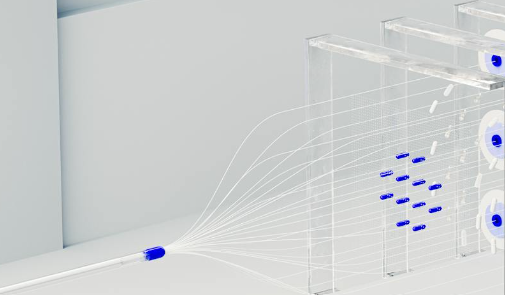




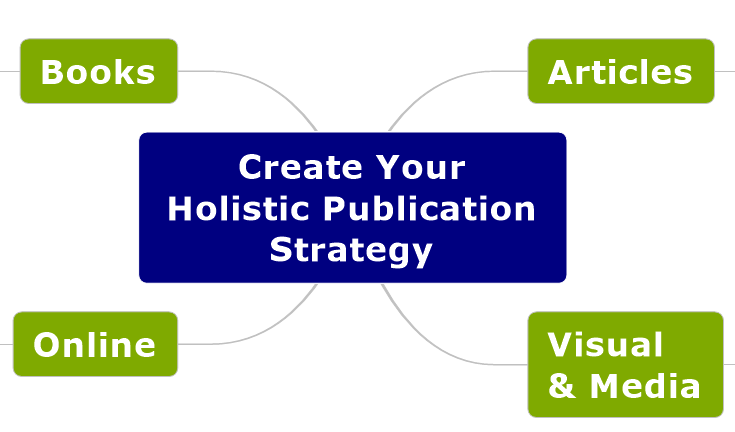


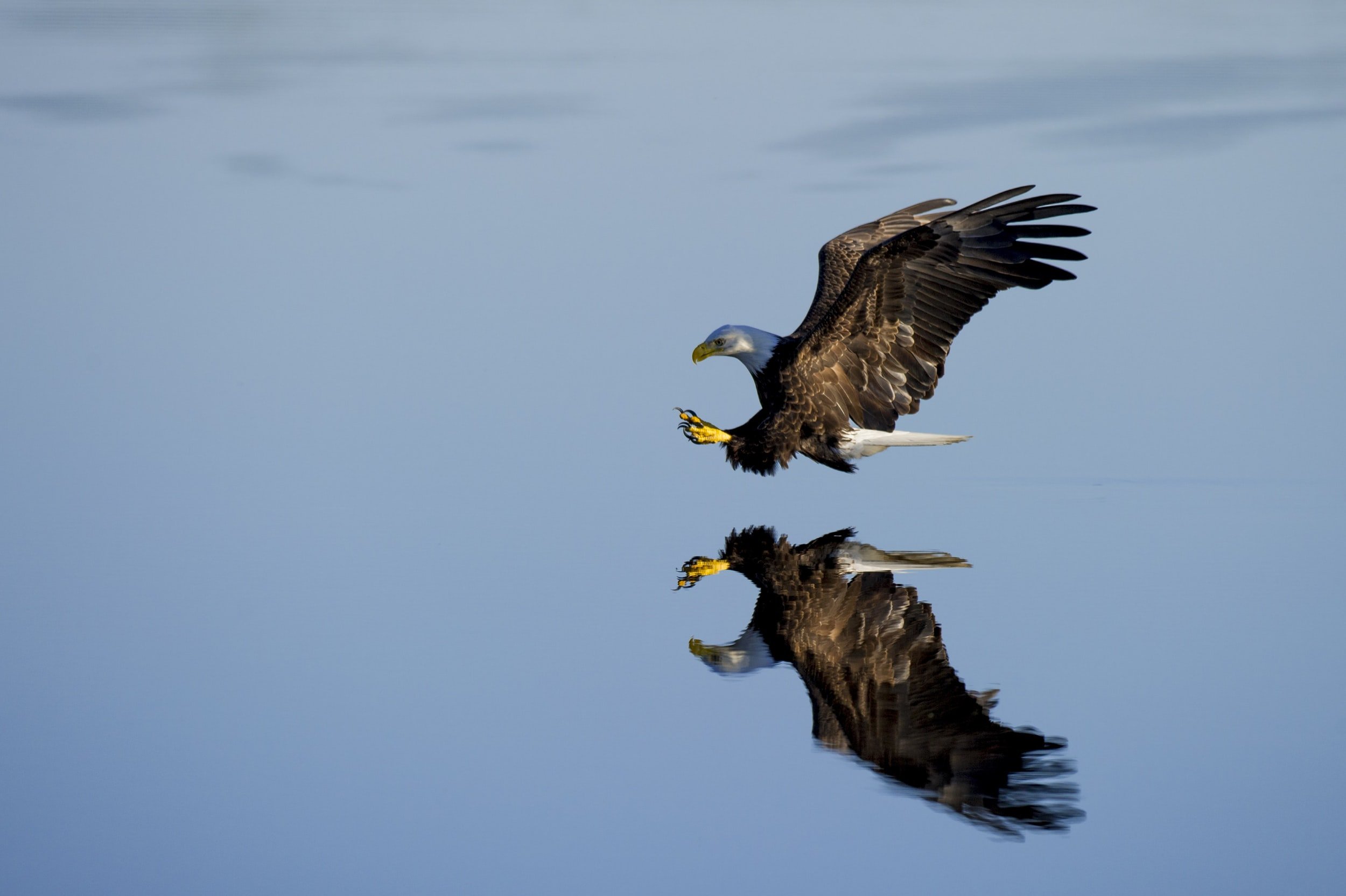


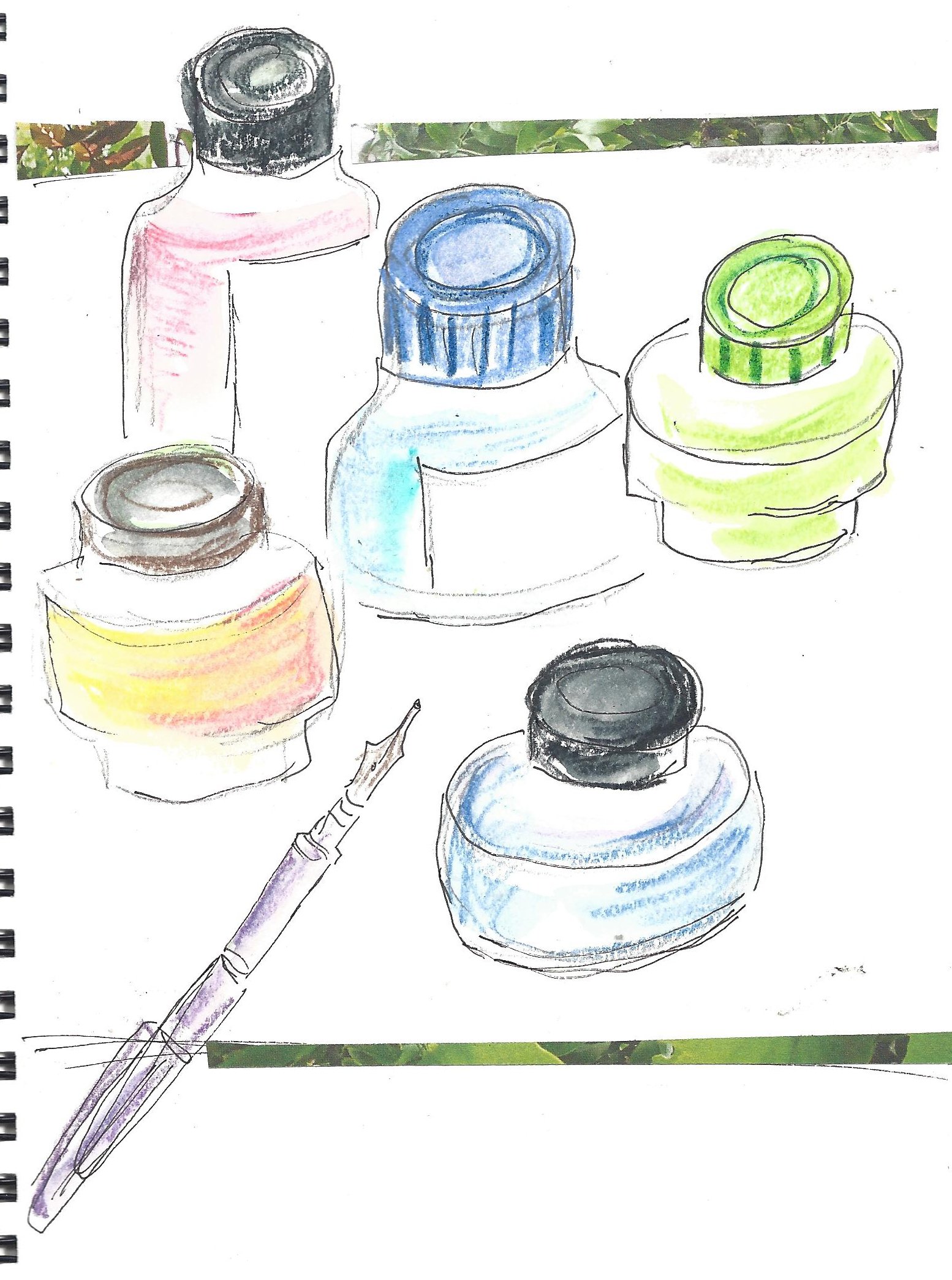




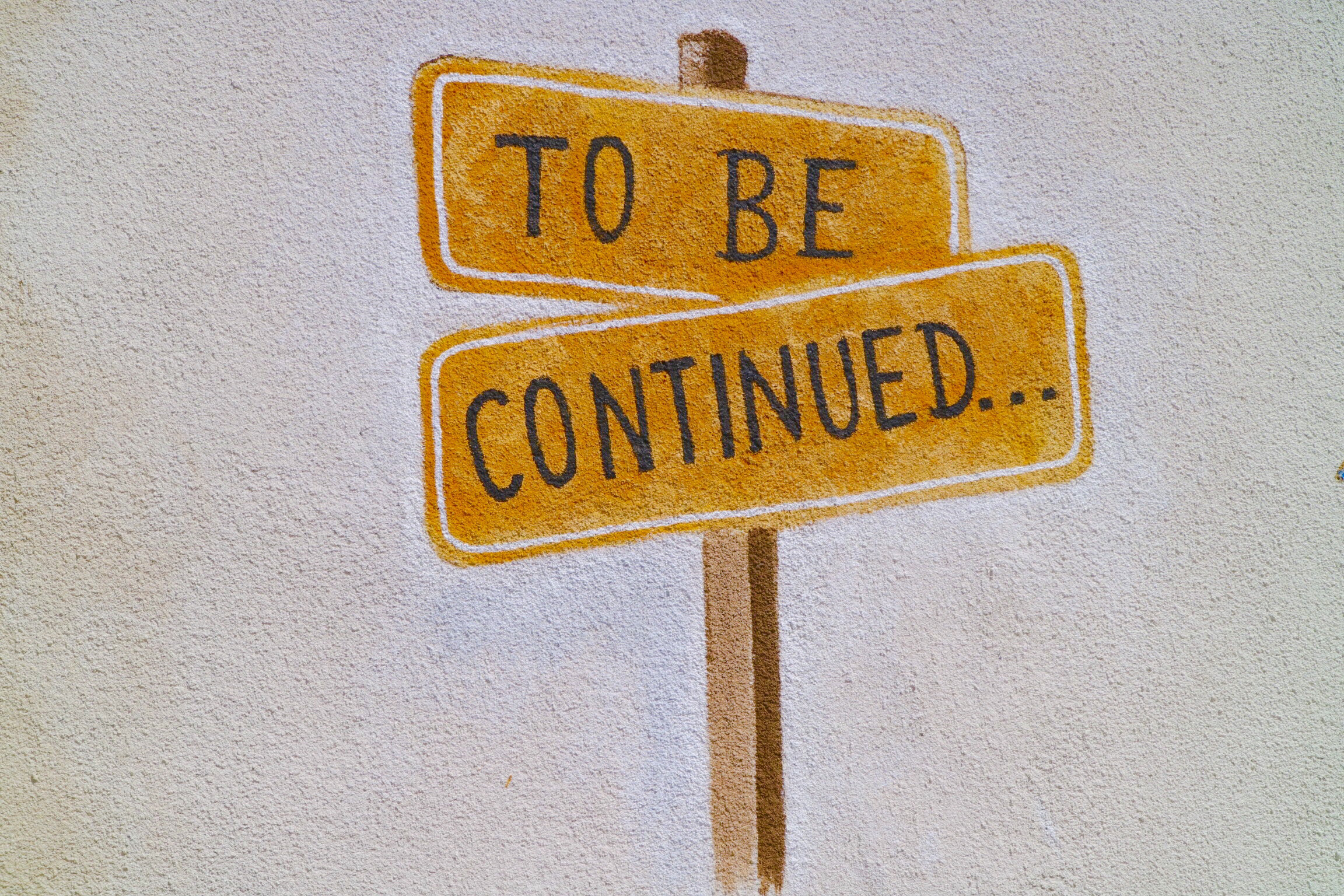








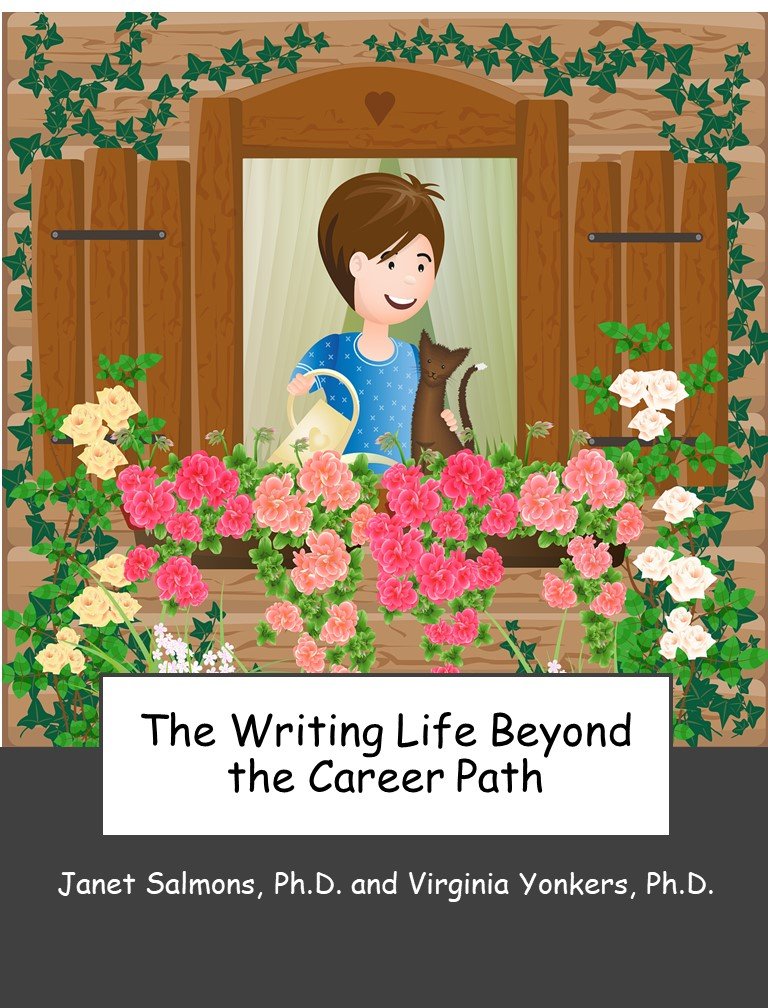


Michelle Boyd answers a question about taking small steps to make progress on a large writing project.